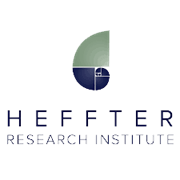Psychedelics to Treat Depression and Psychiatric Disorders
Reported by:
Melanie Brickman Borchard, PhD, MSc
Presented by:
Brain and Behavior Discussion Group
The New York Academy of Sciences
Overview
Currently the FDA categorizes psychedelics such as LSD and psilocybin as Schedule I drugs, indicating that these substances have no medical value. Despite this classification, a resurgence of research in approved labs has demonstrated therapeutic benefits of psychedelics for treatment of psychiatric disorders.
Of note, a recent trial on the effects of MDMA-assisted therapy for post-traumatic stress disorder (PTSD) showed a reduction in the severity of patient symptoms compared with the placebo arm of the trial, providing hope for the future approval of MDMA for therapeutic use. The exciting findings from this study as well as and investigations into other psychedelics are instigating a paradigm shift for treatment-resistant psychiatric conditions, along with increased public interest and efforts to legalize psychedelics for medicinal use.
The New York Academy of Sciences hosted a panel discussion bringing together leading scientists in the fields of pharmacology, neuroscience, and psychiatry to discuss how psychedelics work in the brain to produce therapeutic benefits for depression and other mood disorders. The conversation commenced a description of the socio-political context of psychedelics research, spanning the rise of psychedelics research in the 1950s, restrictions in the 1960s, renewed interest in the 1990s, and present day clinical trials for patients with depression and various other mood disorders.
The program continued by spotlighting the different types of classical and non-traditional psychedelics that are currently being investigated (e.g., psilocybin, MDMA, and ketamine) and how they work to produce therapeutic effects. Panelists concluded the conversation by sharing insights into the use of psychedelics in treatment settings, including explaining the process of facilitated treatment and the role of the therapist/guide during the psychedelic experience (including preparatory therapy, peak effects, and integration).
In this eBriefing, you will learn:
- The socio-political history of psychedelic research for human health
- The difference between classic and non-traditional psychedelics
- The effects of psychedelics on the brain and targets
- The role of the hallucinogenic experience
- The role of psychological support during the psychedelic experience
Event Sponsors
Gold
Bronze
Psychedelics for the Treatment of Depression and Psychiatric Disorders
Moderator
John Krystal, MD
Yale School of Medicine
Speakers
Roland Griffiths, PhD
Johns Hopkins University School of Medicine
David E. Nichols, PhD
Heffter Research Institute
Rachel Yehuda, PhD
Icahn School of Medicine at Mt. Sinai
John Krystal, MD
Yale School of Medicine
Dr. John Krystal is the Robert L. McNeil, Jr., Professor of Translational Research; Professor of Psychiatry, Neuroscience, and Psychology; and Chair of the Department of Psychiatry at the Yale University. He is also Chief of Psychiatry and Behavioral Health at Yale-New Haven Hospital. He is a graduate of the University of Chicago, Yale University School of Medicine, and the Yale Psychiatry Residency Training Program.
Dr. Krystal has published extensively on the neurobiology and treatment of schizophrenia, alcoholism, PTSD, and depression. Notably, his laboratory discovered the rapid antidepressant effects of ketamine in humans. He is the Director of the NIAAA Center for the Translational Neuroscience of Alcoholism and the Clinical Neuroscience Division of the VA National Center for PTSD. Dr. Krystal is a member of the U.S. National Academy of Medicine and a Fellow of the American Association for the Advancement of Science. Currently, he is co-director of the Neuroscience Forum of the U.S. National Academies of Sciences, Engineering, and Medicine; and editor of Biological Psychiatry (IF=12.1).
He has chaired the NIMH Board of Scientific Counselors and served on the national advisory councils for both NIMH and NIAAA. Also, he is past president of the American College of Neuropsychopharmacology (ACNP) and International College of Neuropsychopharmacology (CINP).
Roland Griffiths, PhD
Johns Hopkins University School of Medicine
Roland Griffiths is Professor in the Departments of Psychiatry and Neurosciences and Director of the Center for Psychedelic and Consciousness Research at the Johns Hopkins University School of Medicine. His principal research focus in both clinical and preclinical laboratories has been on the behavioral and subjective effects of mood-altering drugs and he is author of over 400 scientific publications. He has conducted extensive research with sedative-hypnotics, caffeine, and novel mood-altering drugs.
About 20 years ago, he initiated a research program at Johns Hopkins investigating effects of the classic psychedelic substance psilocybin, the active component in “magic mushrooms.” Remarkably, many research participants rate their experience of psilocybin as among the most personally meaningful of their lives, and they attribute enduring positive changes in moods, attitudes and behavior months to years after the experience. Completed and ongoing studies include those in healthy volunteers, in beginning and long-term meditators, and in religious leaders.
Therapeutic studies with psilocybin include treatment of psychological distress in cancer patients, major depressive disorder, nicotine addiction, anorexia nervosa, and various other psychiatric disorders. Related studies of brain imaging and drug interactions are examining pharmacological and neural mechanisms of action. His research group has also conducted a series of survey studies characterizing various naturally-occurring and psychedelic-occasioned transformative experiences including mystical experiences, entity and God-encounter experiences, Near Death experiences, and experiences claimed to reduce depression, anxiety, and substance use disorders.
David E. Nichols, PhD
Heffter Research Institute
David E. Nichols previously held the Robert C. and Charlotte P. Anderson Distinguished Chair in Pharmacology and in addition was a Distinguished Professor of Medicinal Chemistry and Molecular Pharmacology at the Purdue University College of Pharmacy. He was continuously funded by the NIH for nearly three decades and served on numerous government review panels. His two principal research areas focused on drugs that affect serotonin and dopamine transmission in the CNS.
He began medicinal chemistry research on hallucinogens in 1969 and has been internationally recognized as a top expert on the medicinal chemistry of psychedelics (hallucinogens). He has published more than 300 scientific articles, book chapters, and monographs. In 1993 he founded the Heffter Research Institute, which has supported and funded clinical research with psilocybin and led the so-called “renaissance in psychedelic research.”
Rachel Yehuda, PhD
Icahn School of Medicine at Mt. Sinai
Rachel Yehuda, Ph.D. is the Director of the Center for the Study of Psychedelic Psychotherapy and Trauma, Vice Chair for Veterans Affairs for the Psychiatry Department and a Professor of Psychiatry and Neuroscience at the Icahn School of Medicine at Mount Sinai as well as the Director of Mental Health at the Bronx Veterans Affairs Medical Center and the Director of the Traumatic Stress Studies Division.
Throughout her career her research has focused on the study of the enduring effects of trauma exposure, particularly PTSD, as well as associations between biological and psychological measures. She has investigated novel treatment approaches for PTSD and the biological factors that may contribute to differing treatment outcomes for the purpose of developing personalized medicine strategies for treatment matching in PTSD. This work has resulted in an approved US patent for a PTSD blood test.
Recently, Dr. Yehuda’s laboratory has used advances in stem cell technology to examine PTSD gene expression networks in induced neurons. The Center for Psychedelic Psychotherapy and Trauma integrates sophisticated brain imaging and molecular neuroscience in PTSD with clinical trials using MDMA assisted psychotherapy and other related medicines. She has authored more than 450 published papers, chapters, and books in the field of trauma and resilience, focusing on topics such as PTSD prevention and treatment, molecular biomarkers of stress vulnerability and resilience, and intergenerational effects of trauma and PTSD.
Further Readings
John Krystal
Abdallah CG and Krystal JH
Ketamine and Rapid Acting Antidepressants: Are We Ready to Cure, Rather Than Treat Depression?
Behavioral Brain Research. 2020 July 15;(30): 112628
Abdallah CG, Sanacora G, Charney DS, and Duman R
Ketamine: A Paradigm Shift for Depression Research and Treatment
Neuron. 2019 Mar 6;101(5):774-778
Roland Griffiths
Nuwer R
A Psychedelic Drug Passes a Big Test for PTSD Treatment
The New York Times. 2021 May 3
Mills, K
Speaking of Psychology: Psychedelic Therapy with Roland Griffiths, PhD
American Psychology Association
Griffiths RG, Johnson MW, and Carducci MA, et al
Journal of Psychopharmacology. 2016 Dec; 30(12):1181-1197
David E. Nichols
Nichols DE
How Does One Go About Performing Research with Psychedelics?
Multidisciplinary Association for Psychedelic Studies Bulletin. Fall 1997
Nichols DE
Pharmacological Reviews. 2016 April;68(2):264-255
Nichols DE
Studies of the Relationship between Molecular Structure And Hallucinogenic Activity
Pharmacology, Biochemistry, and Behavior. 1986 Feb;2:335-340
Nichols DE
Psilocybin: From Ancient Magic to Modern Medicine
The Journal of Antibiotics. 2020 May 12;73:679-686
Nichols DE, Johnson MW, and Nichols CD
Psychedelics as Medicines: An Emerging New Paradigm
Clinical Pharmacology and Therapeutics. 2016 Nov 4;101(2):209-219
Rachel Yehuda
Vermetten E and Yehuda R
Neuropsychopharmacology. 2020 Jan;45(1):231-232
Yehuda R
Mount Sinai: Five Things to Know About MDMA-Assisted Psychotherapy for PTSD
Multidisciplinary Association for Psychedelic Studies (MAPS) in the Media. 2020 Feb 20
Servick K
A Psychedelic Drug May Help Treat PTSD. But Questions Remain on How Best to Use—And Regulate—It
Science. 2021 May 19

